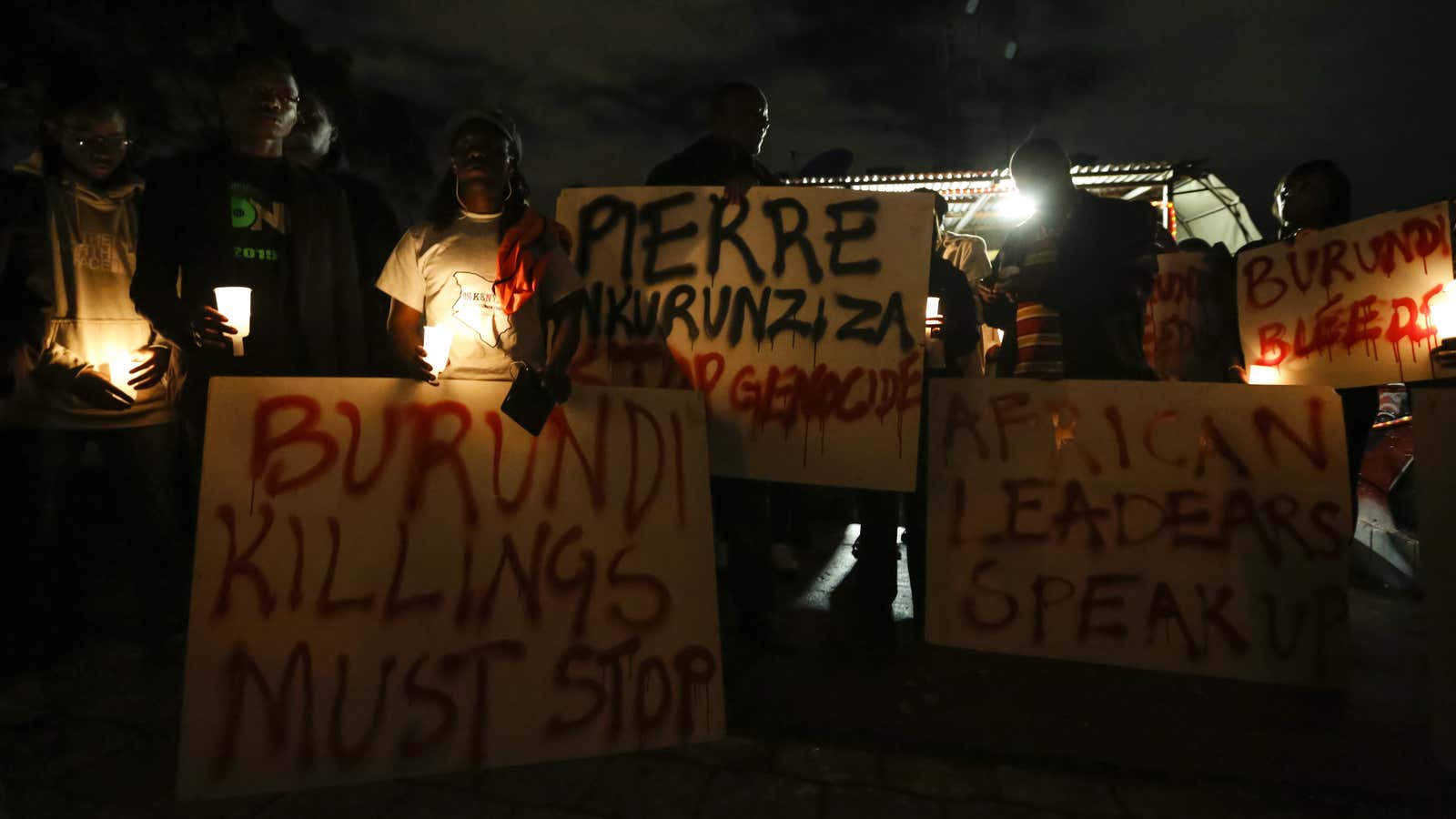Uganda’s president Yoweri Museveni is hosting Burundi peace talks today (Dec. 28) in Entebbe to find a political solution to the escalating violence that has claimed hundreds of lives. Among those expected to attend are representatives from the government, civil society groups, and opposition parties.
The crisis in Burundi erupted in April after president Pierre Nkurunziza sought a constitutional change to allow him to run for a third term, which he eventually secured. Over 300 people have died from related violence since then.
In recent weeks, fears have grown that the situation could descend into civil war. Already, rebel groups opposed to Nkurunziza have announced the formation of a military outfit to fight government forces for power in the country.
The African Union (AU) last week announced it was sending 5,000 peacekeepers to Burundi to help stop the violence. But the decision has been met with strong opposition by the Burundi government, which says any such deployment will be viewed as an act of invasion. The AU has rejected such a characterization and argued that its proposed peacekeepers will only be in Burundi to create conditions necessary for a political solution to the crisis.
There is nevertheless confusion about who among the 54 AU member states will contribute personnel to the peacekeeping force. Burundi’s neighbor Tanzania has said it prefers the peace talks route as a way to resolve the crisis rather than a military approach.
Rwanda’s president Paul Kagame echoed these sentiments and has rejected any notion that his country will offer troops to the exercise. “We have no extra capacity to pass around to people who don’t even want it,” Kagame said. “It is a political problem and not a military one.”
